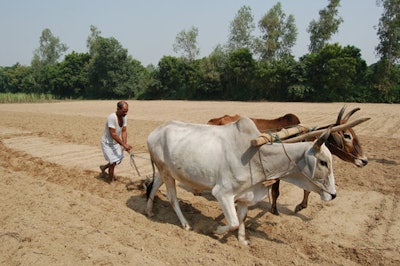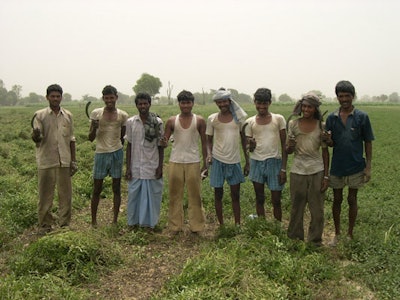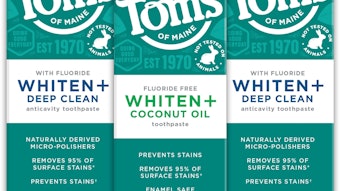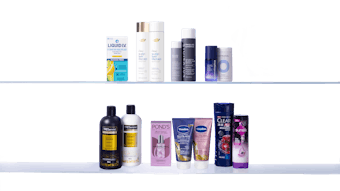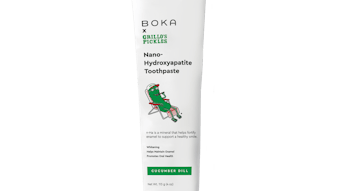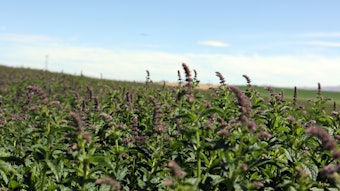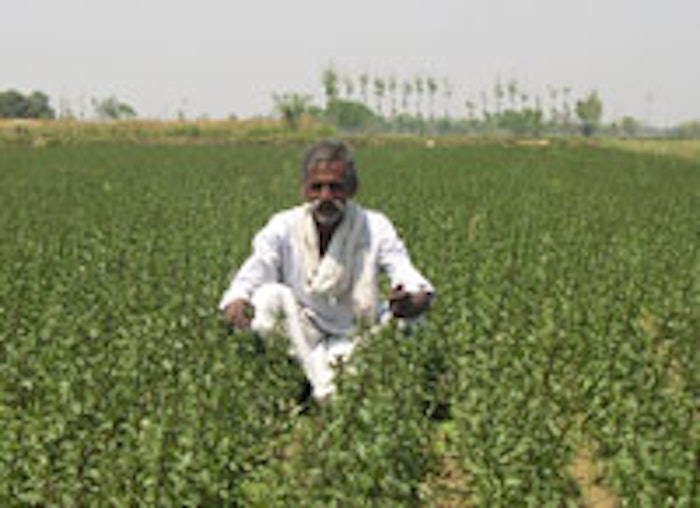
Introduction
Earthoil (Staffordshire, England), a subsidiary of Treatt plc (Bury St. Edmunds, England), has been awarded IMO (Institute for Marketecology) Fair for Life (www.fairforlife.net) status for its Indian mint growing operation in Uttar Pradesh, from which organic and conventional oils are produced: peppermint, spearmint, corn mint, menthol and dementholized oil.
Hugo Bovill, managing director of Treatt plc, explains that Indian mint is traditionally purchased from processors who in turn purchase mint from dealers who in turn buy it from farmers, creating a lengthy and costly “middle man” supply chain scenario—little of which benefits the farmers. Earthoil instead purchases directly from 600-plus collectivized farmers, making some of its payments through an independent charitable foundation. The Earthoil Foundation was established to oversee both premium payments to the farmers for their organic products and a separate payment into a farmer-led community fund which provides everything from organic inputs to health and education improvements within the villages. The arrangement’s Fair for Life certification recognizes standards of social accountability and fair trade in agricultural, manufacturing and trading operations. According to an official statement, “The criteria for this accreditation include guaranteeing good working conditions, respecting core labor rights and ensuring smallholder groups have a fair relationship with farmer organizations (or the contracting company) and the individual farmer.”
Here, Rob Hardy, special projects director for organic and fair trade for Earthoil, presents his insights into the fair trade challenges of producing organic essential oils. Hardy’s background extends to his previous work with the Soil Association and other Earthoil projects for certified organic cosmetic oils in Africa and India.
- Jeb Gleason-Allured, Editor
What is Fair and Ethical Trade?
Organic essential oils and organic seed oils, grown and extracted to certified organic standards, are a significant and rapidly growing part of the supply chain sought by formulators within the global flavor, fragrance and cosmetics industries. The end products to which they are directed now cover a broad spectrum limited only by the imaginations of formulators—food flavorings, personal care products, cosmetic preparations and air fresheners.
The industry reaches into a wide variety of markets. And throughout these markets is an increasing interest in, and adoption of, organic standards of production. The use of organic ingredients by formulators is therefore rapidly increasing. Simultaneously, because the component raw materials are so often sourced from producers in developing countries, the adoption of fair trading practices has come under very close attention.
While organic raw materials such as essential and vegetable oils are certified under a well recognized organic certification process, no such certification category exists for the same products under fair trade status. Recently, raw material suppliers and organic certification bodies have been working as joint pioneers in an effort to create a separate but relevant standard.
In essence fair trade is a trading partnership based on dialogue, transparency and respect, which seeks and establishes greater equity in international trade. By offering better trading conditions it contributes to sustainable development and secures the rights of disadvantaged producers, workers and their communities. As yet there is no legislation/regulation covering fair-trade, as there is with organic production. However, France now has draft legislation, and there is the potential for EU governance to cover this area at some point in the future.
The current growth in fair trade is dominated by local initiatives under the umbrella of the Fair Trade Labeling Organisations (FLO; www.fairtrade.net). The US-based initiative is Transfair (www.transfairusa.org), with other initiatives such as the Fairtrade Foundation in the United Kingdom (www.fairtrade.org.uk) and Max Havelaar in France (www.maxhavelaar.ch/en). The standards used cover a number of commodities, including coffee, tea, cocoa and several fruits. However, the FLO standards, as yet, do not cover all agricultural product categories. Thus, essential oils and vegetable oils are not yet covered by FLO.
Several organizations are seeking to establish some type of fair or ethical standard for these products to address FLO and other certification organizations’ limited range and specificity of fair trade product standards. As with FLO, they are geared to product certification, as opposed to making a fair-trade claim about an organization/company producing the product. Organic certifiers that currently offer such certification include IMO (Institute of Market Ecology), Naturland (www.naturland.de/welcome.html), Soil Association (www.soilassociation.org) and Ecocert (www.ecocert.com). Their standards are not limited to the current FLO product categories, and therefore allow suppliers to seek objective and independent certification of product ranges.
While different fair trade-type certification bodies offer different standards with differing emphases, they all cover the following principles based on fairness, mutual respect and transparency:
- Employment is chosen freely.
- Freedom of association and the right to collective bargaining are respected.
- Working conditions are safe and hygienic.
- Enforced child labor shall not be used (remembering that, in India and Africa, farms are family enterprises, and children have their duties in support of their family).
- Living wages are paid.
- Working hours are not excessive and are reasonable.
- No discrimination is practiced.
- Regular employment is provided.
- No harsh or inhumane treatment is allowed.
- There should be sustainable trading relationships, based on trust, transparency, equity, accountability and continuity. These should be long term, based on mutual advantage, which includes price stability.
- There should be a social and cultural emphasis within and external to the business that benefits the wider community.
- The whole chain of product supply is covered, from farmer to retailer.
- The environment is both protected and enhanced.
Fair Trade Projects in the Field
Fair/ethical trade is at the very core of a project in Uttar Pradesh, India, where Earthoil works with an organic grower group of over 600 small-scale mint farmers producing organically certified peppermint, spearmint and corn mint oils. These farmers had previously been growing mint oils by conventional means. In 2003, they began to convert the project to organic, overseen by agronomists and field managers who have educated the farmers on organic farming methods, organic certification of land, and associated paperwork and documentation.
Meanwhile, in the foothills of Mount Kenya in Africa, Earthoil Kenya (the African operations arm of the Earthoil Group) is overseeing a community grower group of more than 500 small-scale farmers producing organic essential oils such as tea tree oil, and pressed seed oils such as sunflower oil. Earthoil oversees these operations, training field officers and providing agronomists to deal with all aspects of the farming of these crops.
In both of these projects, premium payments are made to individual farmer members, but crucially payments are also made to a community fund. The responsibility for, and the decisions relating to the use of these funds, will be made by democratically elected farmer organizations. The intention is to encourage the flow of wider benefits into the farmers’ local communities—health, education and cultural enhancement.
With these changes to the business model, more comprehensive checks on sources, more searching questions, and requests for more detailed documentation arise. Passing co-responsibility upstream to suppliers is no easy task. Nevertheless, by working closely in-conjunction with suppliers, organizations can ensure that the principles and practices of ethical/fair trade are fully met whilst not comprising upon the quality of their raw materials.
Similar projects to those in Kenya and India for other raw materials are being considered by Treatt to meet the growing demand for both organic and fairly traded ingredients for the flavor, fragrance and cosmetics markets.
